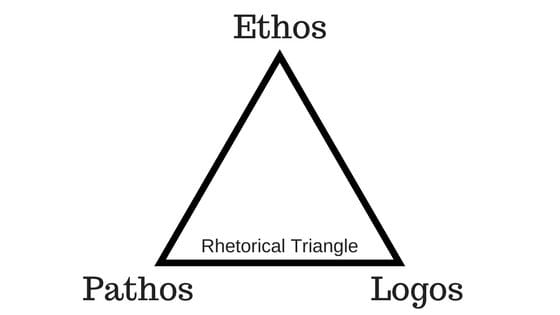If you belong to a school or college or are still in any phase of academic life, there is a high chance that you have come across the activity of essay writing and specifically rhetorical analysis essays. In schools and colleges, essay writing seems to be the favorite activity or assessment of professors that they assign every other day in every other subject. We have all passed through this phase of academic writing.

Essay writing is not that boring an activity as it seems to be in the first attempt. If you are a beginner essay writer, that too for a literature subject asked to work on rhetorical analysis, it will be difficult for you to avoid all the logical fallacies. Begin your research by finding what a rhetorical analysis is and how it is formulated. For that purpose, we are here to help.
I might sound nerdy but if I would have been in your place, assigned to develop a rhetorical analysis and write my essay, I would have been happy to do it instead of any other paper writing activity. The reason for such interest and attraction might be the fact that rhetorical analysis does not need some figurative and technical strategies to reach its end. Another reason for interest in the rhetorical analysis could be the three basic techniques including logos, pathos, and ethos that surround it. The terms and ideas initially introduced by Aristotle in his work hold much importance in the literary world today.
The terms sound dainty, but now the question comes to what they exactly mean and how do we add them while writing a rhetorical analysis essay.
Logos: logical explanations to persuade the audience, often known as “Appeal to reason” or “logical appeal”.
Pathos: emotional strategies, targeting the sentiments and beliefs of the audience, utilized by the writer to persuade the audience. They are known as ‘emotional appeal’.
Ethos: Ethics and moral justifications used credibly to convince the audience, often stated as “appeal to the character” or “appeal to credibility”.
These are the three techniques used by most writers to convince their audience and persuade them in every possible way. When you read or analyze a paper or essay, you are required significantly to get into the head of the writer and analyze the pattern of writing that he followed to make his readers stick till the end of the essay. Similarly, when you are writing an essay, you are required to get into the head of your readers and make sure you take that same path that helps your reader follow you with immense curiosity and interest.
When you start writing a rhetorical analysis, you must keep in view these three techniques used by the writer and explain the pattern that he followed to connect with his readers throughout the text. When you analyze a text and these techniques, you better not just begin and end with explaining why and how the writer initiated and utilized these techniques in the form of logic, emotion, or ethical explanation in his text. You must begin your essay with the following steps to finally attempt to discuss the usage of these techniques in your essay.
- Begin your essay by analyzing and highlighting the reason why the writer chose to talk on such a specific topic
- Discuss the techniques and pieces of evidence that the writer used to proceed with his discussion
- Provide evidence to your explanation of WHY and HOW you think the writer worked that way, through certain examples from the primary and secondary sources to justify your claim.
- State your perspective regarding the work that the writer performed through the usage of certain rhetorical devices. Give your opinion whether you like this usage or not. If not, what made you think that those certain techniques don't work to lead the essay smoothly towards its end.
It is an interesting fact that while analyzing another writer’s work based on logos, ethos, and pathos, your analysis gets covered by any one or all of these techniques. Explaining the logic, reason, ethical perspective, or demonstrative characteristics of the given primary text will get you through your analysis as well.
All three of these characteristics including Logos, Pathos, and Ethos make up the basic structure for rhetoric. This applies to all text, whether the text is a speech, analytical essay, or any other essay as well. Reader’s interest reaches its pinnacle when you utilize these three techniques in your work effectively. If you are not interested in proceeding with such techniques or that you don’t find a way and you need more guidance, you can hire a writer from an essay writing service by searching online. They can easily help you get your work done within the given time. But if you want to work on your work skills to develop these techniques, you must not give up and go for the option of getting your work done from someone else.
It is not necessary to add all of these techniques in your analysis or essay in the very first attempt forcefully. Essay writing gets the most interesting when it is not a forcible knowledge dumping box for a writer. Coherence and relevance make the most out of it and help the reader stay for long in the essay as well. So if not all of these techniques are making a way in your essay, you can continue with either or two of them as well.
Related Resources :
Guidelines to avoid copyright infringement in your paper- 8 Vital Tips
The best method to make a fascinating end- Tips 2021
Writing a University Thesis- An Important Guide
Critical Steps to Develop an Amazing Definition Article
Comments
Post a Comment